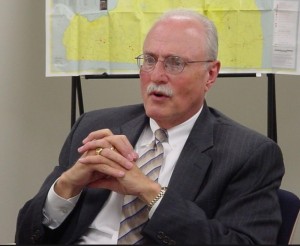Dear Commons Community,
Only 43 percent of test-takers in 2013 met the SAT’s definition of being prepared for college, a statistic that has remained stagnant since 2009. The 1.6 million test-takers averaged 496 in reading, 514 on math and 488 on writing, according to a Thursday report released by the College Board, the company behind the college entrance exams. The College Board defines the college-ready benchmark as 1550 out of 2400, a score the organization says indicates a 65 percent likelihood of a student earning a first-year college GPA of a B-minus or above. A Huffington Post article commented:
“What, exactly, these numbers mean is up for debate. The college readiness statistics are just one more piece of the puzzle in assessing the state of America’s schools, and the release comes amid a national hand wringing about just how bad public education really is and what direction it should take. Most states are beginning to teach to a new set of national standards known as the Common Core, but many parents and politicians are either unaware or skeptical.
For its part, the College Board is interpreting high schoolers’ performance on its test as a call for improvement. To be truly prepared for college, the company maintained in a call with reporters, students need access to higher-level courses — such as the Advanced Placement program, another College Board offering.
“While some might see stagnant scores as no news, we at the College Board see this as a call to action,” College Board President David Coleman said during the call.
Opponents of a focus on testing in schools were quick to pounce on the stagnant SAT results. “Proponents of ‘No Child Left Behind,’ ‘Race to the Top,’ and similar state-level programs promised the testing focus would boost college readiness while narrowing score gaps between groups,” Bob Schaeffer, public education director of the National Center for Fair & Open Testing, said in a statement. “The data show a total failure according to their own measures. Doubling down on unsuccessful policies with more high-stakes K-12 testing, as Common Core exam proponents propose, is an exercise in futility, not meaningful school improvement.”
Minority students showed some score increases in 2013. This year, 15.6 percent of African-American students taking the test met the benchmark, the College Board reported, compared to 14.8 percent last year. In 2013, 23.5 percent of Latino students met the benchmark, up from 22.8 percent in 2012.
Representatives of the education establishment were optimistic. “While certainly the flat scores are nothing to celebrate, when you did down deeper into the data, we see a lot of encouraging news,” said Jim Hull, a senior policy analyst for the National School Boards Association. “Our public schools are doing a much better job preparing our poor and minority students for college.”
In its report, the College Board noted that 78 percent of those who meet the SAT college-ready benchmark enroll in four-year colleges, compared to 46 percent of those who don’t.
Others were skeptical of the College Board. “No doubt that far too many students are not college-ready, and the College Board’s appeals to have more students take a more rigorous curriculum is important,” said Mark Schneider, a vice president of the American Institutes of Research who previously oversaw the U.S. Education Department’s statistics arm.”However, this does not mean that the CB’s suite of products (PSAT/SAT/AP) is causally connected to college success. This report skirts way too close to that causal link than it should.”
Any reports coming out of the College Board have to be taken with a grain of salt especially now that David Coleman is its president. Mr. Coleman has long been on the side of bashing public education, promoting the Common Core, and perpetuating a test, test, test approach to teaching and learning.
Tony




